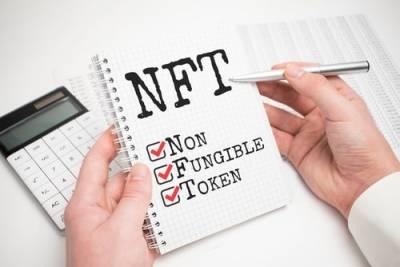How Are NFTs Taxed When They Are Included in Retirement Accounts?
 Taxpayers may own multiple types of assets, including digital assets that can come in a variety of different forms. Over the past few years, many transactions have been conducted involving NFTs. An NFT ("non-fungible token") is a unique digital ID that is attached to a collectible item. NFTs use the same blockchain technology as cryptocurrency, providing a record of ownership that cannot be copied or falsified. They can grant ownership of assets such as digital images, videos, items in video games, or pieces of virtual real estate in the "metaverse," and they can also certify ownership of physical assets such as artwork.
Taxpayers may own multiple types of assets, including digital assets that can come in a variety of different forms. Over the past few years, many transactions have been conducted involving NFTs. An NFT ("non-fungible token") is a unique digital ID that is attached to a collectible item. NFTs use the same blockchain technology as cryptocurrency, providing a record of ownership that cannot be copied or falsified. They can grant ownership of assets such as digital images, videos, items in video games, or pieces of virtual real estate in the "metaverse," and they can also certify ownership of physical assets such as artwork.
While NFTs, cryptocurrency, and other digital assets are relatively new, they represent significant investments for many people, and they can have high values. Because more and more transactions involving NFTs are being conducted, the IRS has taken steps to ensure that these transactions are taxed correctly. Recently, it issued guidance on how taxes may apply to NFTs that are acquired by retirement accounts.
Taxes on Collectibles in IRAs
Internal Revenue Code Section 408 addresses assets that are held in individual retirement accounts (IRAs). These accounts may acquire multiple different types of assets that may be held for the benefit of account holders or plan members. Taxes will generally apply when distributions are made from retirement accounts after a person reaches retirement age. However, Section 408(m) specifies that matters may be handled differently if assets acquired by an IRA are considered to be collectibles.
Under Section 408(m), collectibles are defined as:
-
Works of art
-
Antiques or rugs
-
Gems or metals
-
Coins or stamps
-
Alcoholic beverages
-
Other applicable tangible property
When an IRA acquires a collectible, such as by using the funds in an account to purchase a work of art, this will be considered a distribution from the account. The amount of the cost paid by the IRA to acquire the collectible will be considered income for the account holder, and it will be subject to income tax for the tax year in which the collectible was acquired. A 10 percent early withdrawal penalty may also apply if the account holder is under the retirement age of 59 1/2. If the collectible is sold at a later date, it will be subject to a maximum 28 percent capital gains tax rate.
If an IRA acquires an NFT, it may or may not be considered a collectible. The IRS may perform a "look-through analysis" to determine whether the NFT grants ownership of one of the types of collectibles defined in Section 408(m). For example, an NFT that certifies ownership of a stamp would be considered a collectible, but an NFT that grants ownership of a video game item would not be considered a collectible. The issue of whether NFTs related to digital images or videos are considered collectible works of art has not yet been fully settled by the IRS. Currently, these issues are being handled on a case-by-case basis.
Contact Our San Jose Tax Law Attorney for Retirement Accounts
If you have questions about the taxes that may apply to the assets held in retirement accounts, or if you are concerned about whether ownership of NFTs or other digital assets could result in a heavy tax burden, John D. Teter Law Offices can help you understand the best ways to address these issues. We can help you determine how to avoid tax penalties, respond to tax audits, and minimize the amount you will be required to pay to the IRS. Contact our San Jose, CA tax lawyer at 408-866-1810 to set up a consultation.
Sources:
https://www.irs.gov/retirement-plans/investments-in-collectibles-in-individually-directed-qualified-plan-accounts
https://www.irs.gov/pub/irs-drop/n-23-27.pdf









